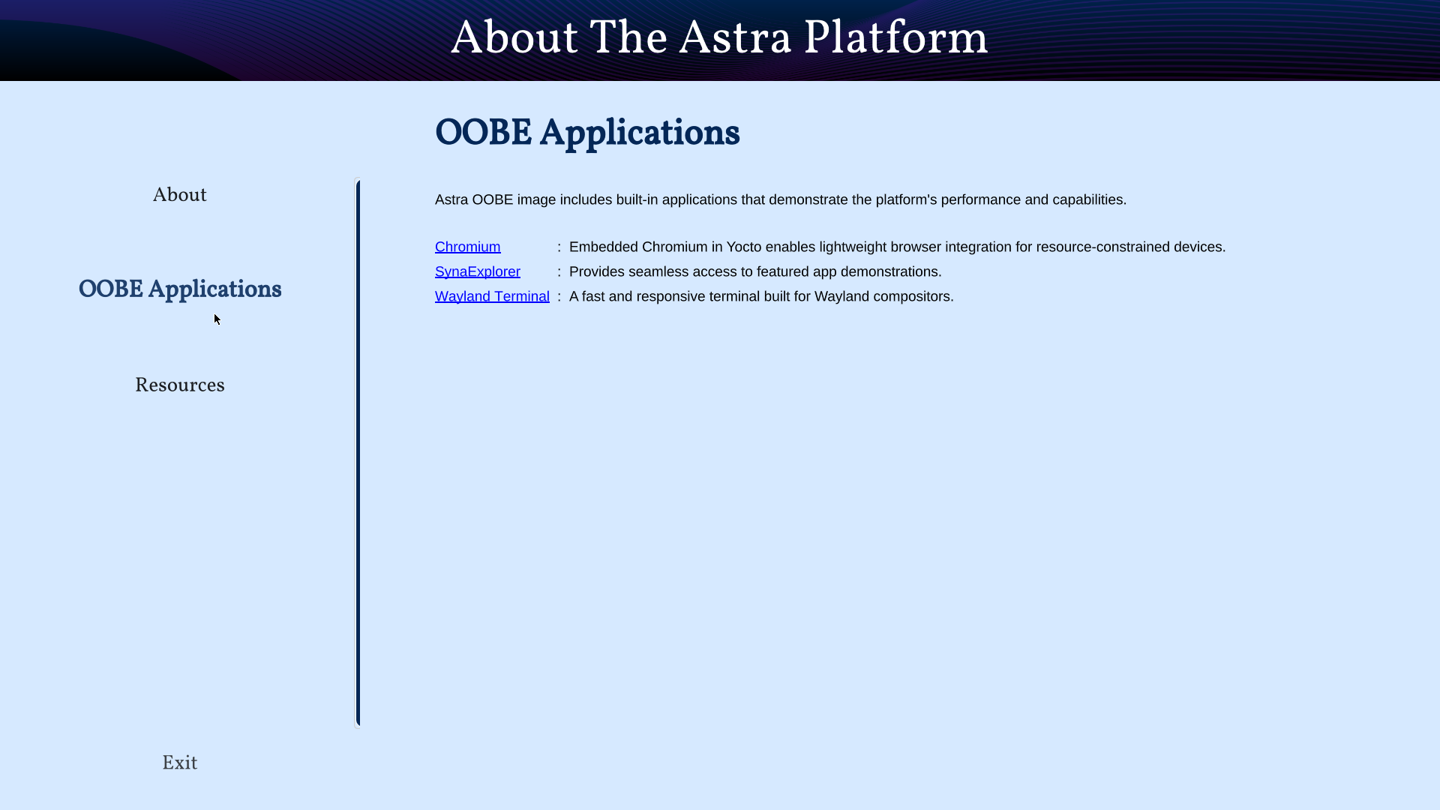Using the Built-in Applications
Astra Machina comes preinstalled with several applications which showcase the capabilities of the platform.
Astra Machina starts up with the welcome screen. The welcome screen is a customized Weston desktop.
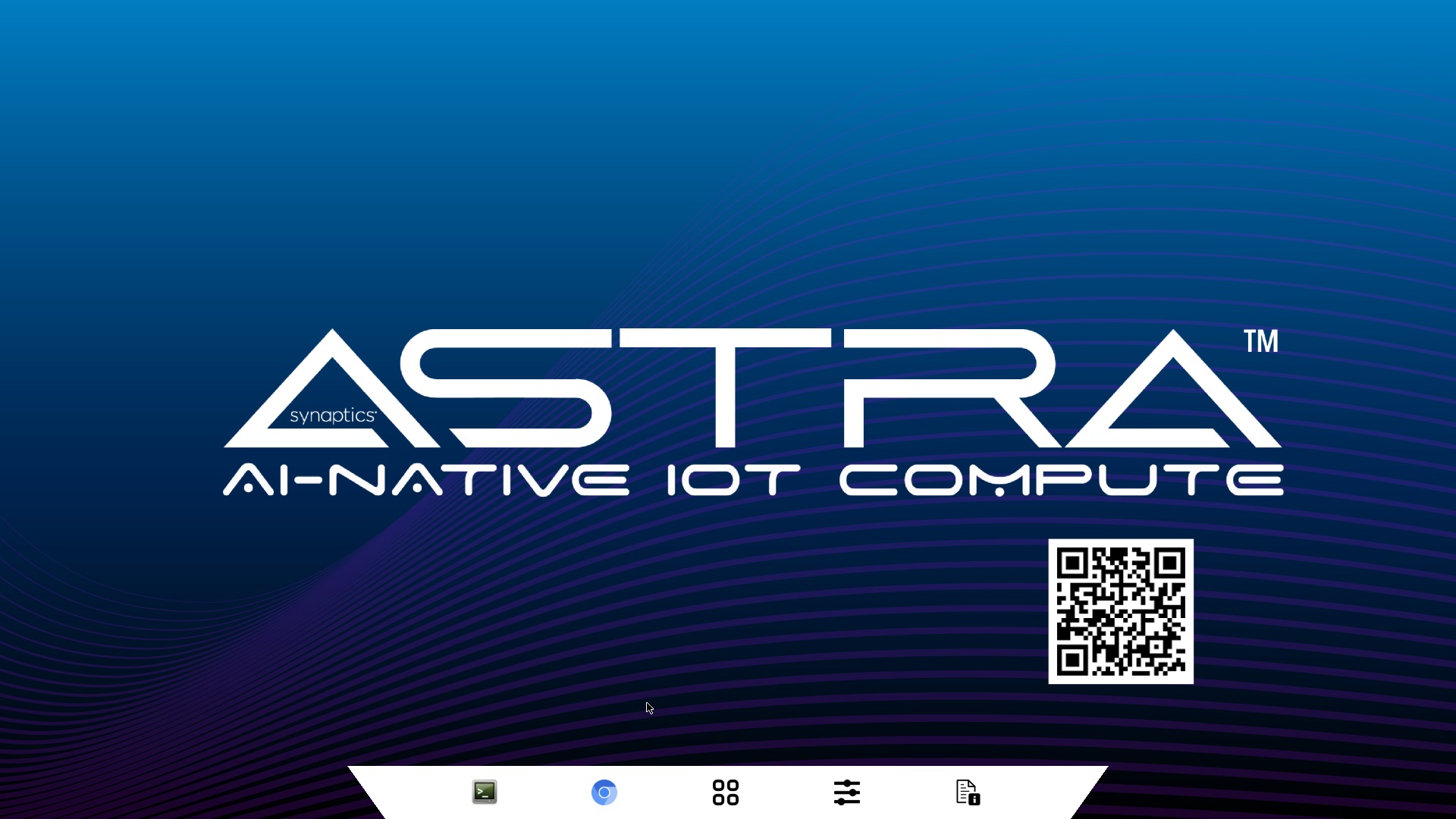
The Welcome Screen
At the bottom is a quick access panel with icons which will launch the three applications.
Terminal
Chromium Browser
SynaExplorer
Settings
About
How to Use Audio
Note
Currently, only 3.5mm playback works. For microphone use, follow these steps:
Connect the USB headset.
Enable audio by configuring the USB headset as the default device.
Update /etc/asound.conf as follows (run arecord -l to find the card
number):
pcm.!default {
type hw
card <number>
device <number>
}
ctl.!default {
type hw
card <number>
}
To enable USB Audio for Chromium (Microphone Use cases only):
Follow the same steps as above.
Then, perform the following steps:
vi /etc/xdg/weston/weston.ini
Remove –alsa-output-device=hw:0,1 from the following file section:
[launcher]
icon=/usr/share/syna-weston-desktop/browser.png
path=XDG_RUNTIME_DIR=/var/run/user/0 WAYLAND_DISPLAY=wayland-1
QT_QPA_PLATFORM=wayland CHROME_USER_DATA_DIR=/home/root/chromium_data/
/usr/bin/chromium --no-sandbox --alsa-output-device=hw:0,1
--restore-last-session
displayname=Chromium
systemctl restart weston
Terminal
A standard Linux terminal can be launched by clicking the terminal icon on the quick access panel.

Chromium Browser
Chromium can be launched by clicking the Chromium icon in the quick access panel.
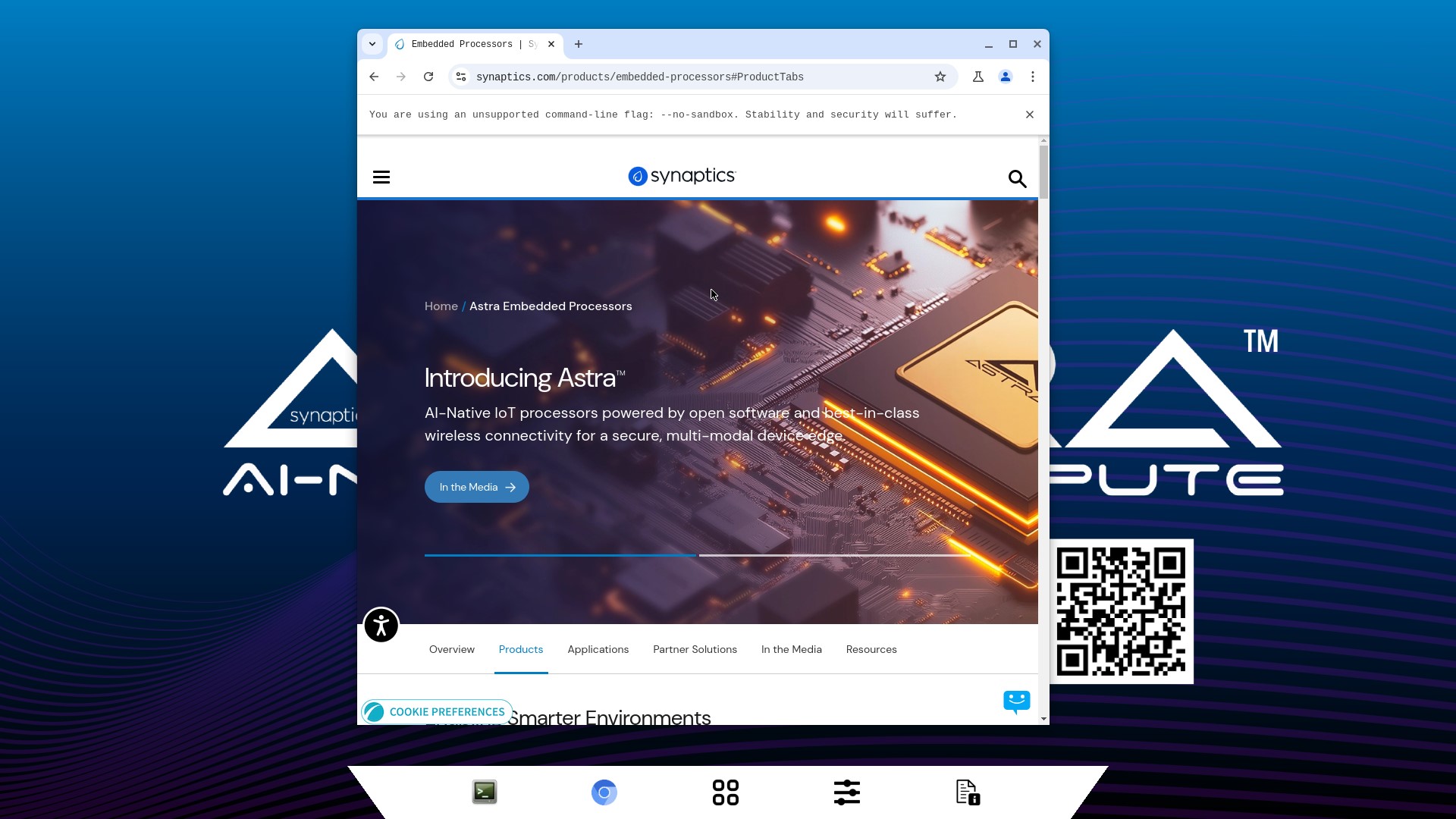
YouTube Playback:
Open Chromium and search for a YouTube video to stream
set playback to 480p
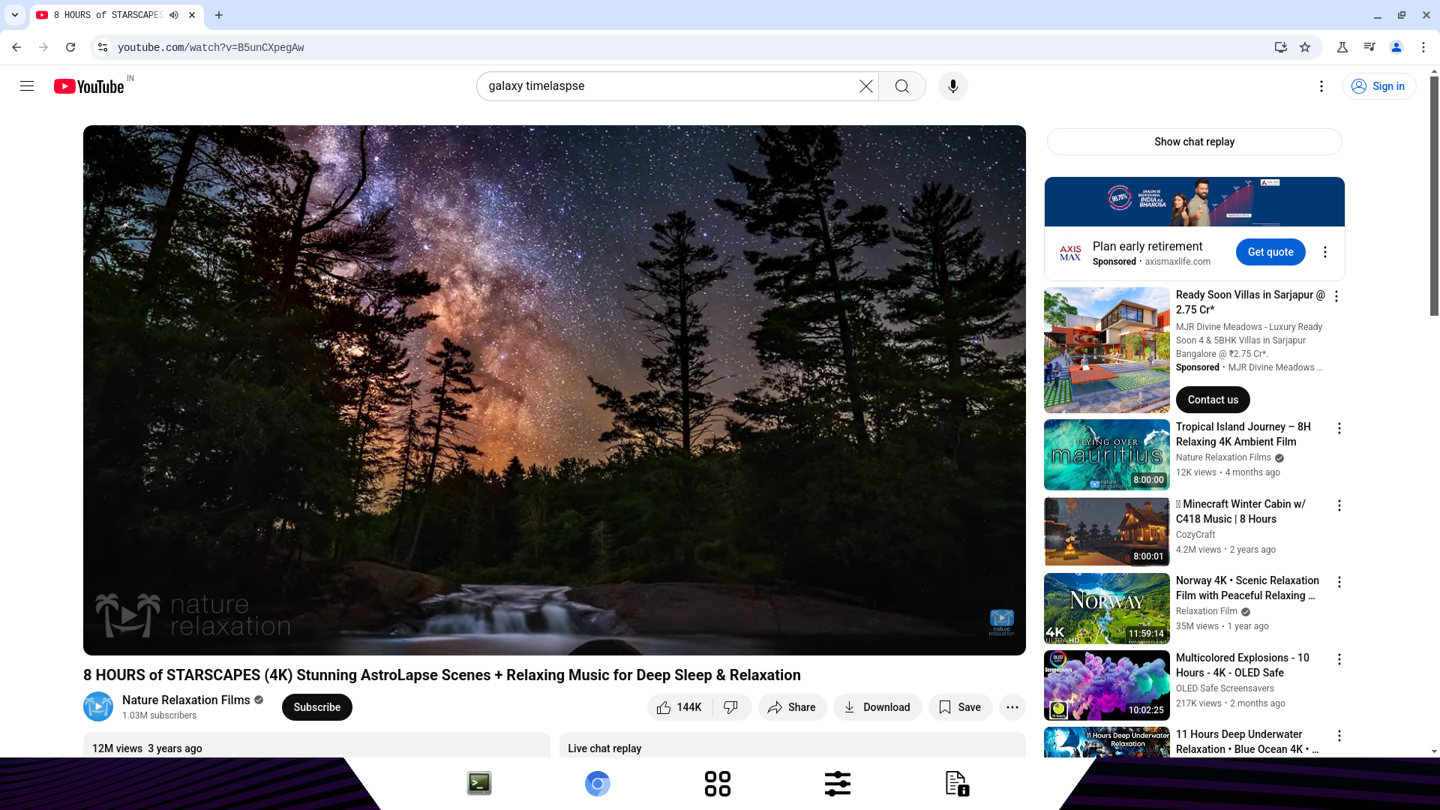
SynaExplorer
The SynaExplorer app demonstrates the capabilities of the Astra platform. It showcases multimedia using files, USB cameras, and RTSP camera streams.
Open the SynaExplorer app by clicking the icon with the four squares in the quick access panel.
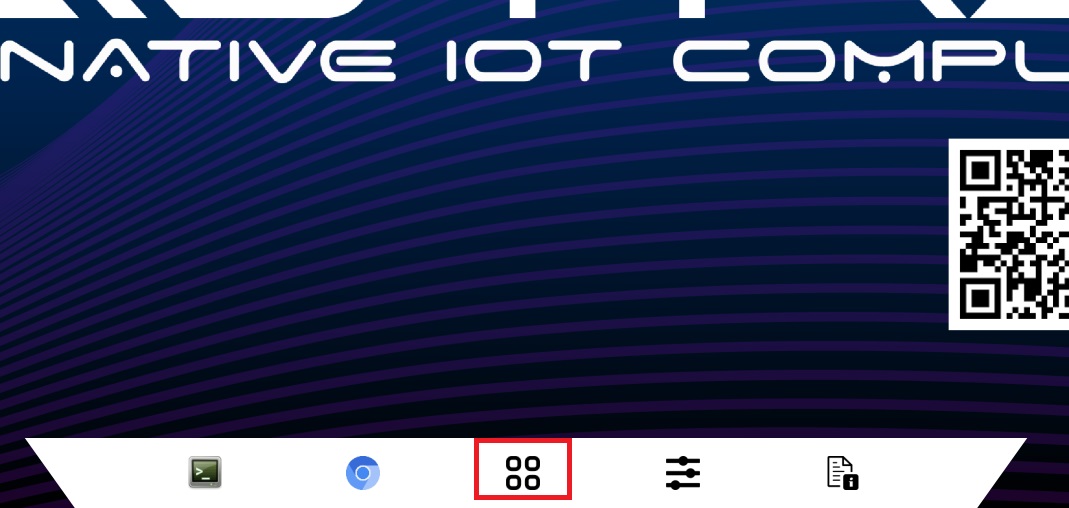
SynaExplorer icon highlighted in quick access panel
The app opens to the landing page, with demo category buttons on the left and a “Getting Started” pane on the right. The pane displays a thumbnail of the Astra intro video, which plays when clicked. The app uses Gstreamer to handle video and audio playback of the video file.
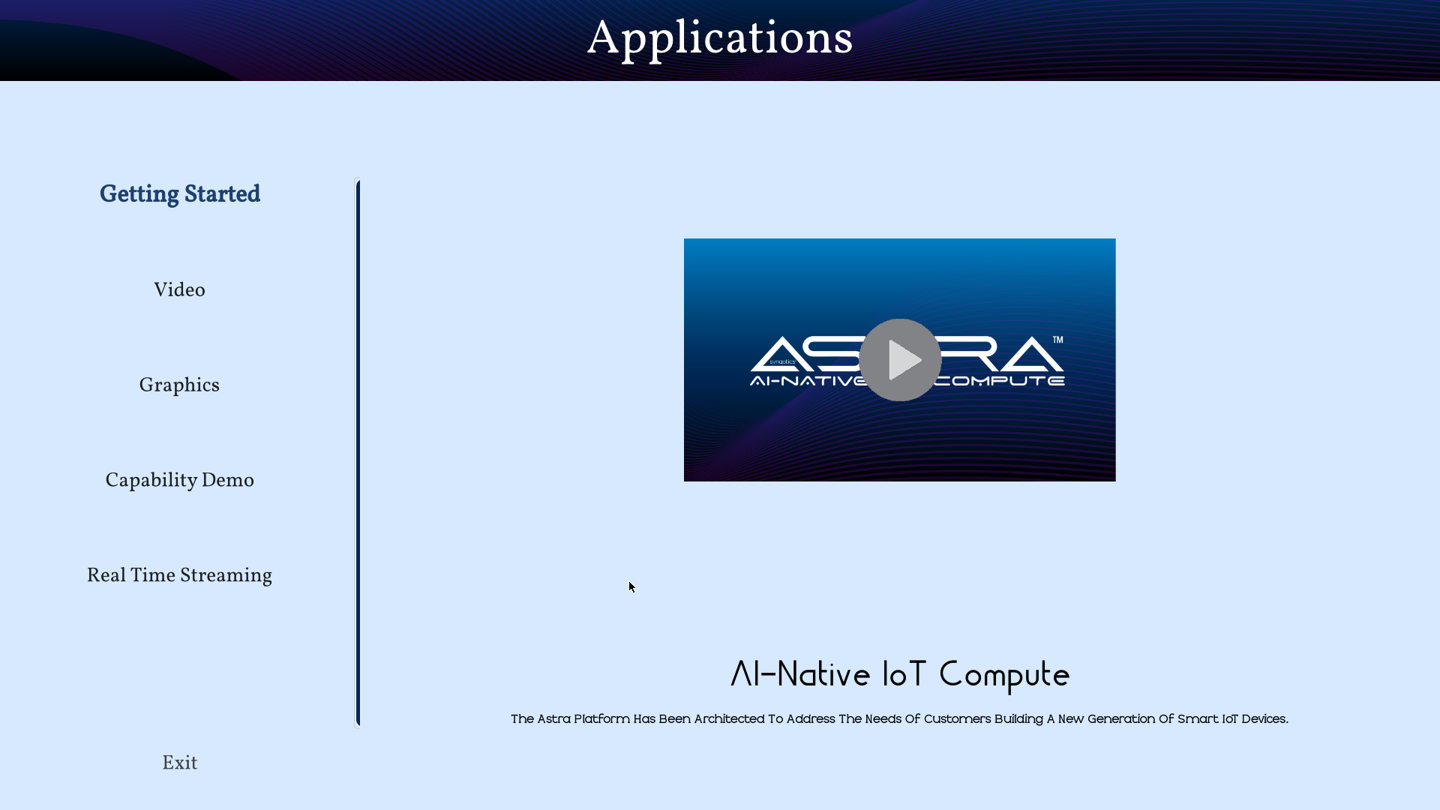
Getting Started pane on SL2619
The video will play continuously until the “Close” button in the lower right hand corner of footer is clicked. This will return the user to the main page.

Highlighted Close button during video playback
This footer also has an option to display real-time resource usage information such as CPU and Memory consumption during runtime. To enable this, you can click on the “Show stats” button on the lower right hand corner.

Highlighted Show Stats button during video playback
It appears as a horizontal panel at the bottom of the screen, occupying approximately 8–10% of the total display area. It remains persistently visible unless manually hidden or disabled for all the demos.

System Load Status on Footer
Note
The CPU stats shown in %CPU is the CPU used at the current moment by the entire usecase as a % of the current CPU freq which is configured as schedutil mode (which is dynamic in nature) by default. To see accurate %CPU usage, CPUfreq should be kept in performance (or fixed userdefined) mode.
Video
The second button on the left is the “Video” button, which opens the “Video” pane. This pane has a button for the “Video Player” demo.
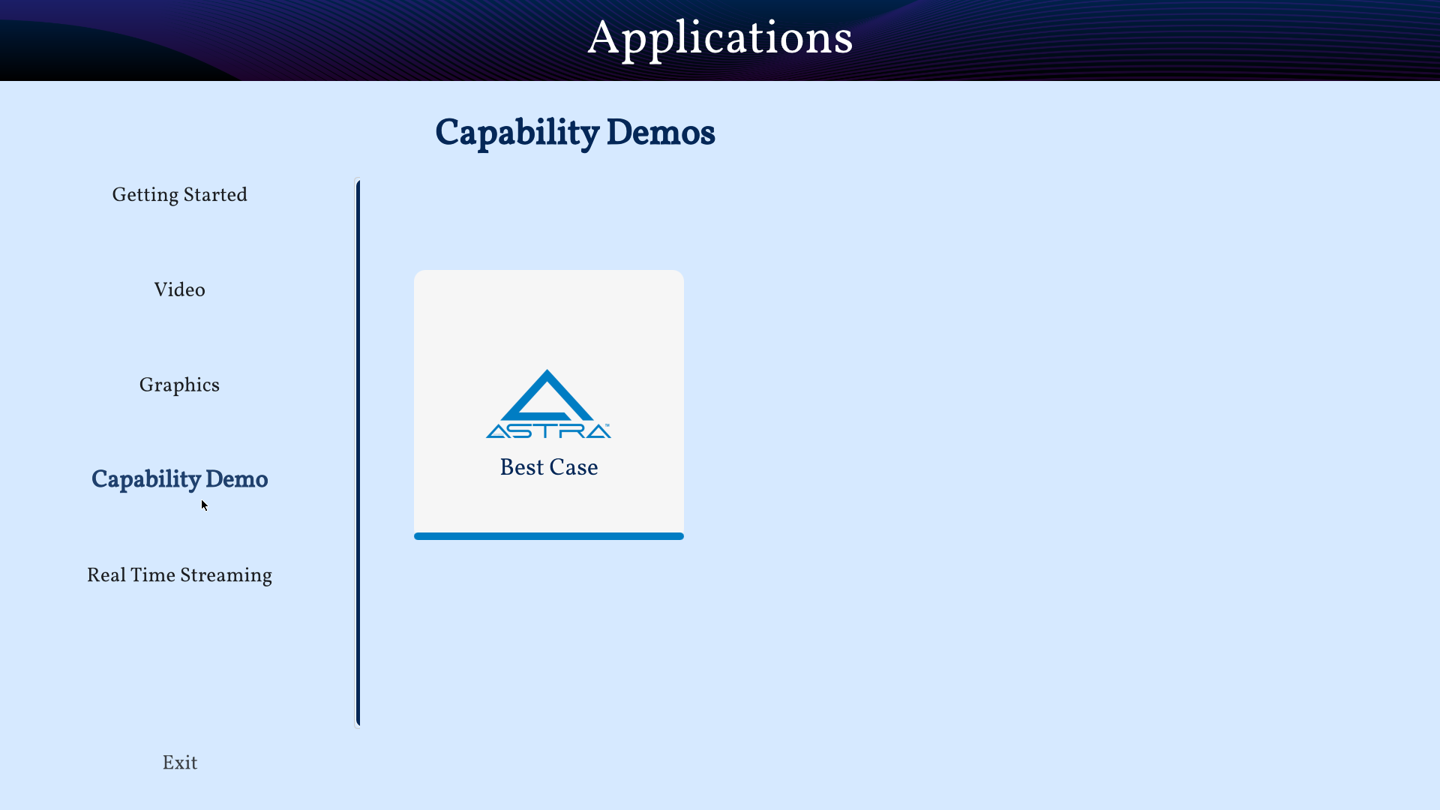
Screenshot of the “Video” pane on SL2619.
Syna Video Player
The “Video Player” demonstrates video playback from multiple sources. - File source - Astra video files (1080p30) - USB camera source - RTSP camera source
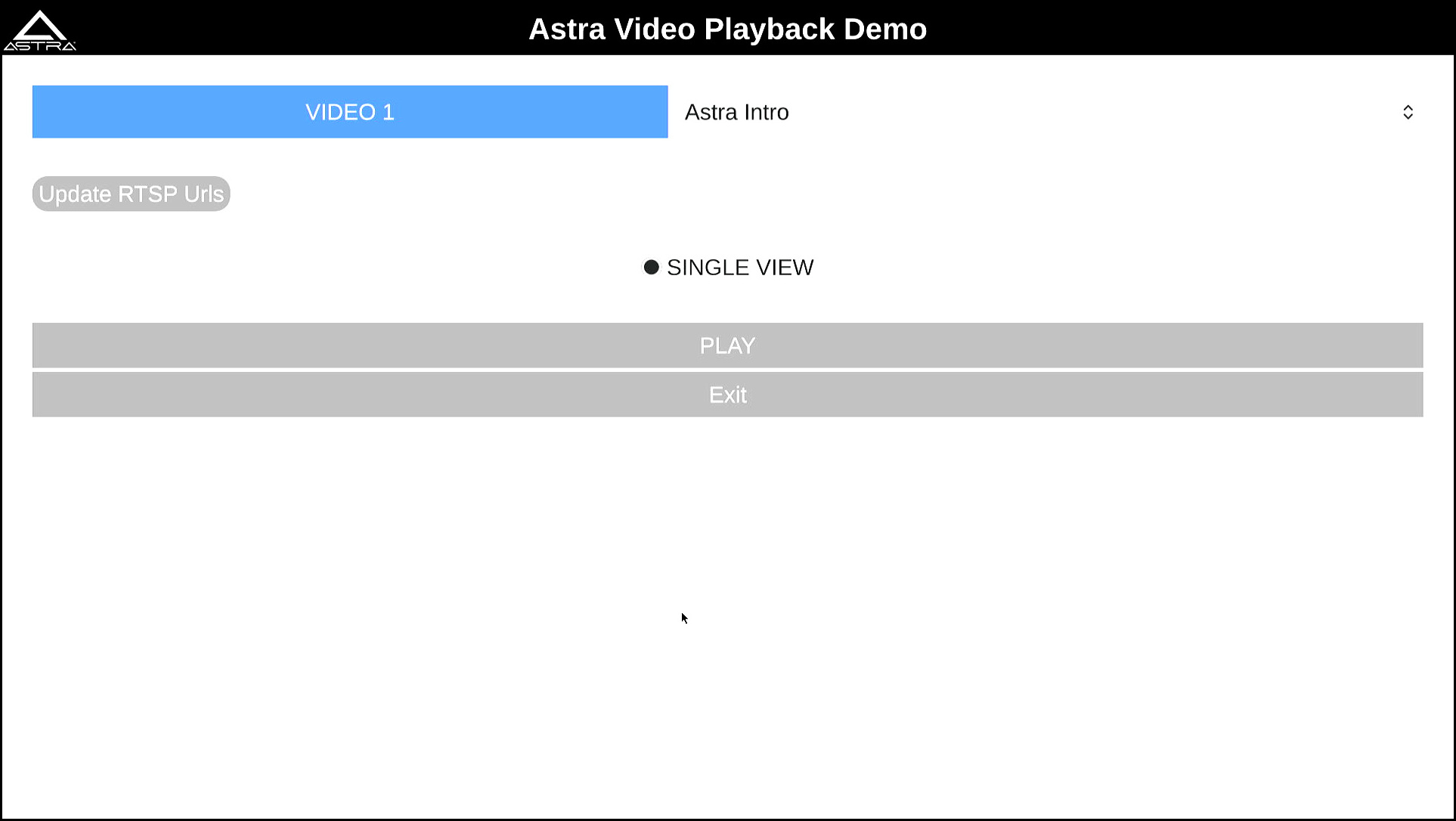
Video Player on SL2619
Use the dropdown to the right of the “Video 1” label to select a source.
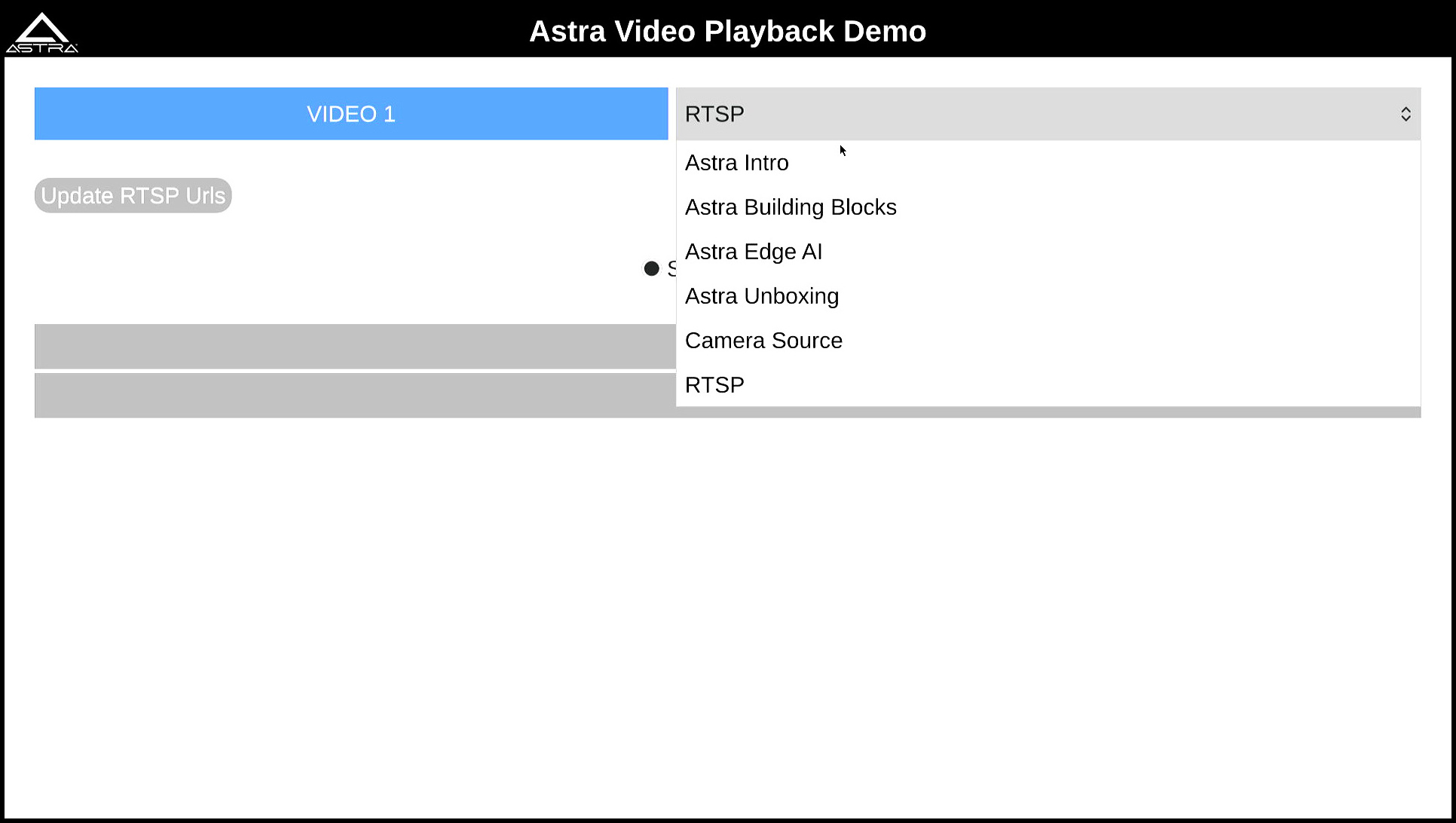
Video Player on dropdown menu on SL2619
Use the “Update RTSP Urls” windows to set the RTSP URL when using a RTSP camera as the source. After entering the RTSP URL, press OK button.
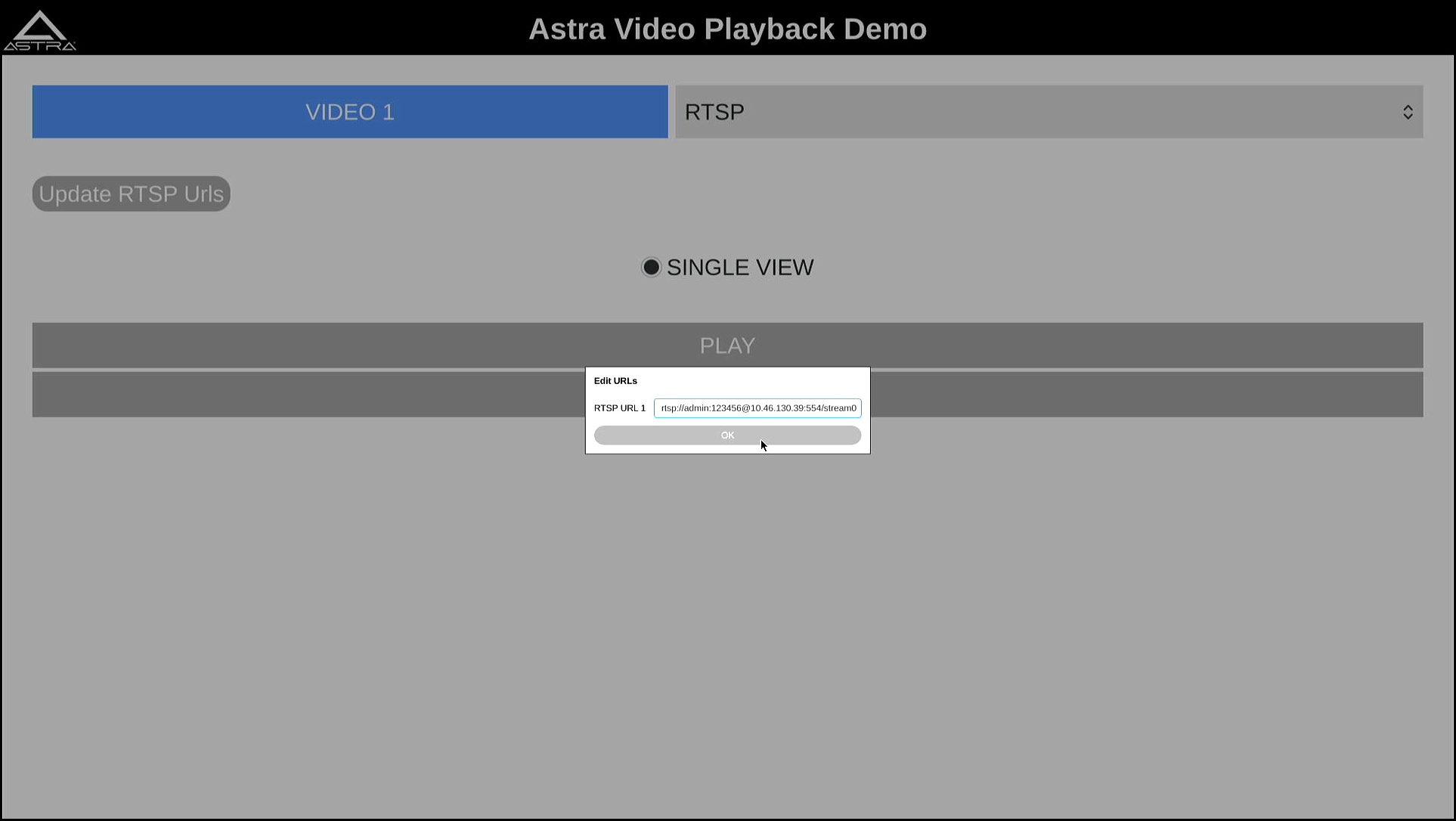
Update RTSP Urls window on SL2619
Graphics
The third button on the left is the “Graphics” button, which opens the “Graphics” pane. This pane contains three demos which showcase the graphics capability of Astra Machina. These demos are stock QT examples which are included as part of the QT 5 environment. These demos are Textures, Animated Tiles, and FingerPaint.
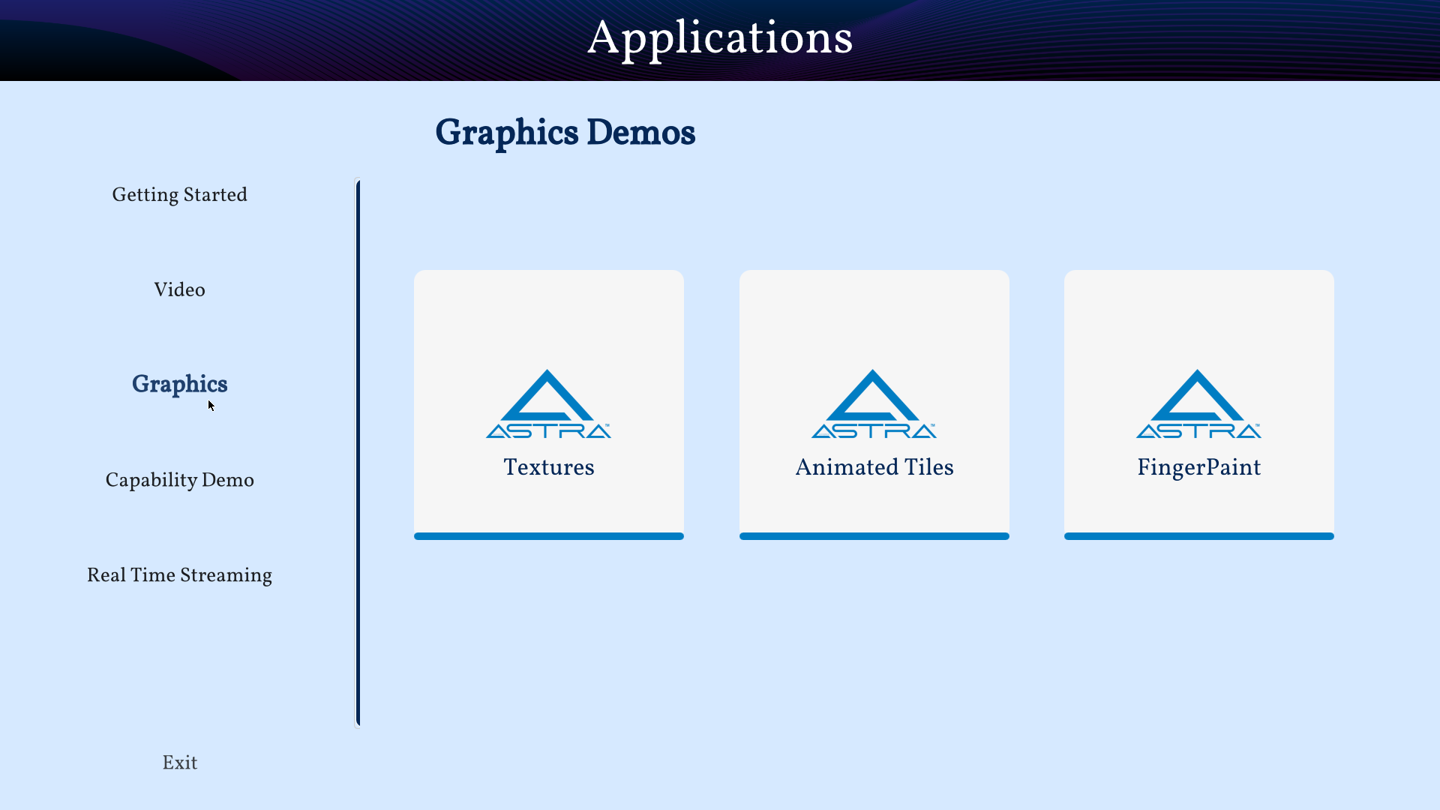
Graphics pane on SL2619
Note
The FingerPaint application is intended to be used with displays with a touch panel.
Capability Demo
The fifth button on the left is the “Capability Demo” button, which opens the “Capability Demos” pane. This pane contains a button to launch the “Best Case” app, which demonstrates the capability of the platform.
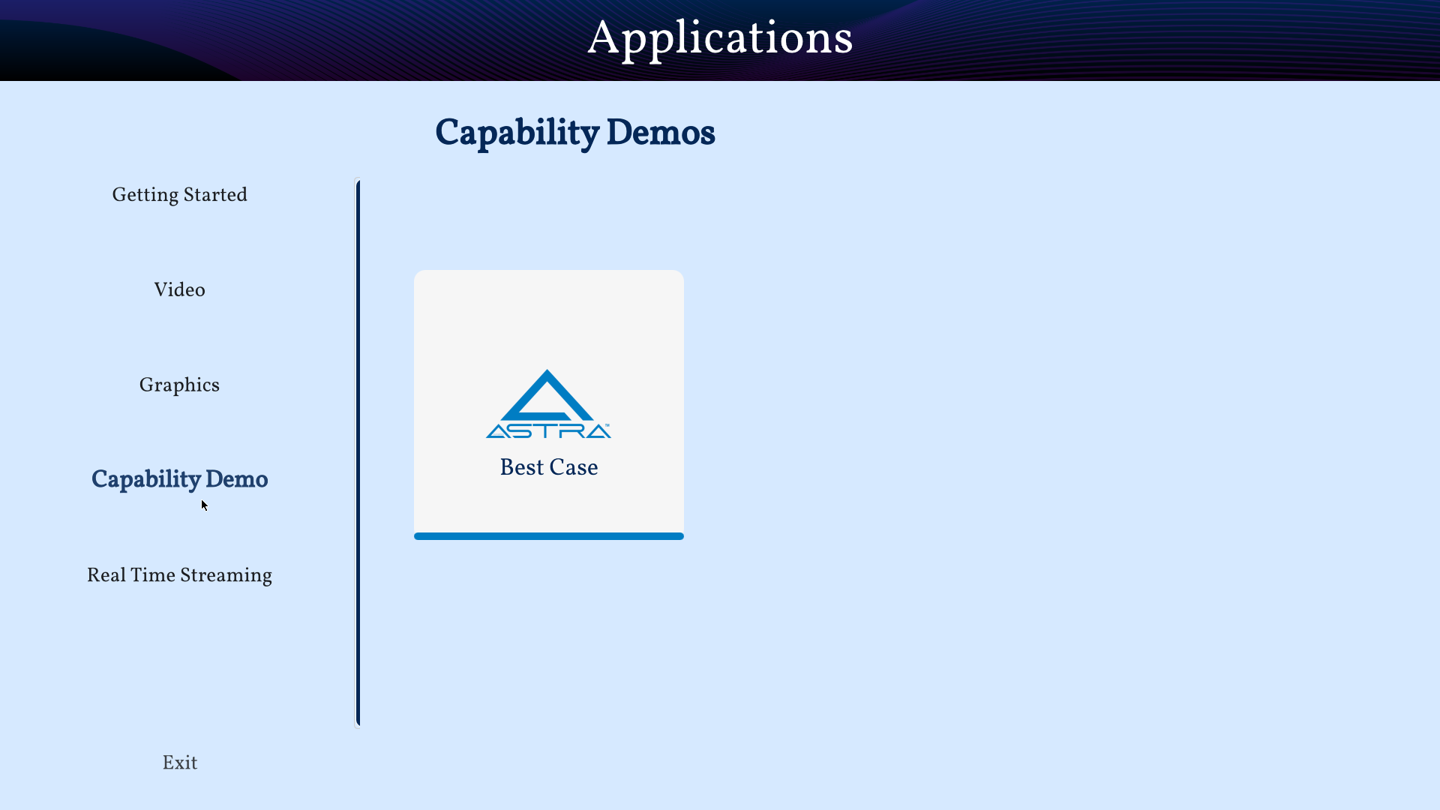
Capability Demo pane on SL1680
Best Case
The example demonstrates one of the best use case which the platform can support.
Multiple decoding: streams of 640x360@30 using FFMpeg SW Mixing of streams and rendering to display.
A window will open where selection of different H.264 video files can be made. Number of selection depends on platform capability.
Click on left side buttons, to select a file. A file explorer will open which will allow to navigate and select a file.
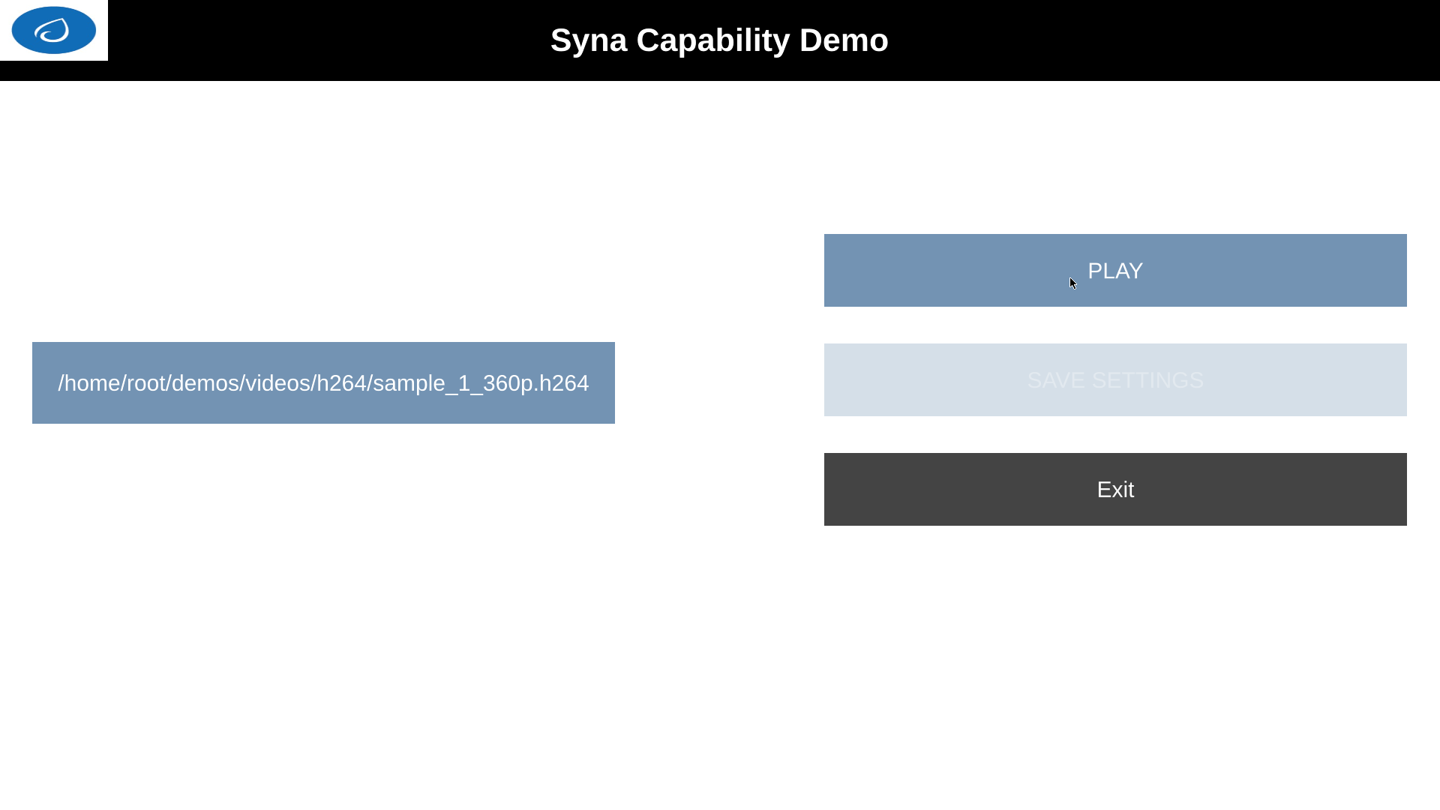
Best case H.264 file selection
Click on “SAVE SETTINGS” button to save selections. Click on “PLAY” button to start.
Real Time Streaming
The sixth button on the left is the “Real Time Streaming” button. This pane contains syna players. One is Syna Gst WebRTC, Seamless Real-Time Communication with GStreamer’s WebRTC Sink and the other one is Syna Dash Player, Adaptive MPD Player with Smooth Resolution Switching.
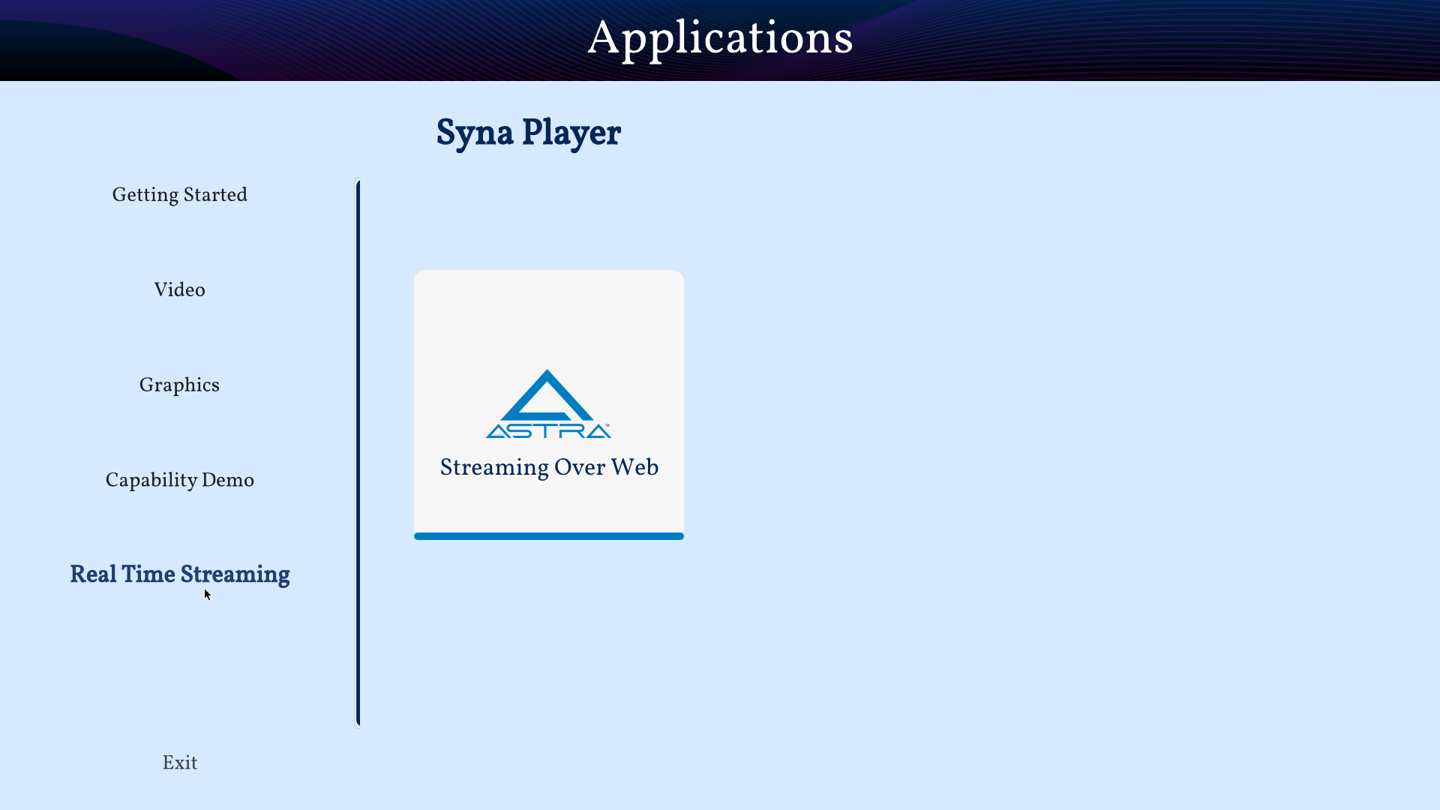
Real Time Streaming Pane
Syna Gst WebRTC
Astra transforms real-time communication by utilizing GStreamer’s WebRTC sink for fast audio and video streaming. Built on the GStreamer framework, Astra provides developers with a seamless, scalable solution for modern communication needs
The WebRTC GStreamer plugin (webrtcsink) enables real-time peer-to-peer media streaming using WebRTC technology. This plugin allows GStreamer applications to transmit and receive audio and video streams over WebRTC, including essential features like built-in signaling, ICE (Interactive Connectivity Establishment), STUN/TURN, and data channels.
When users click on the “Streaming on Web” section, they will see the UI shown below, from the drop-down menu, user can choose Camera, FileSrc or AI Demos as Input.
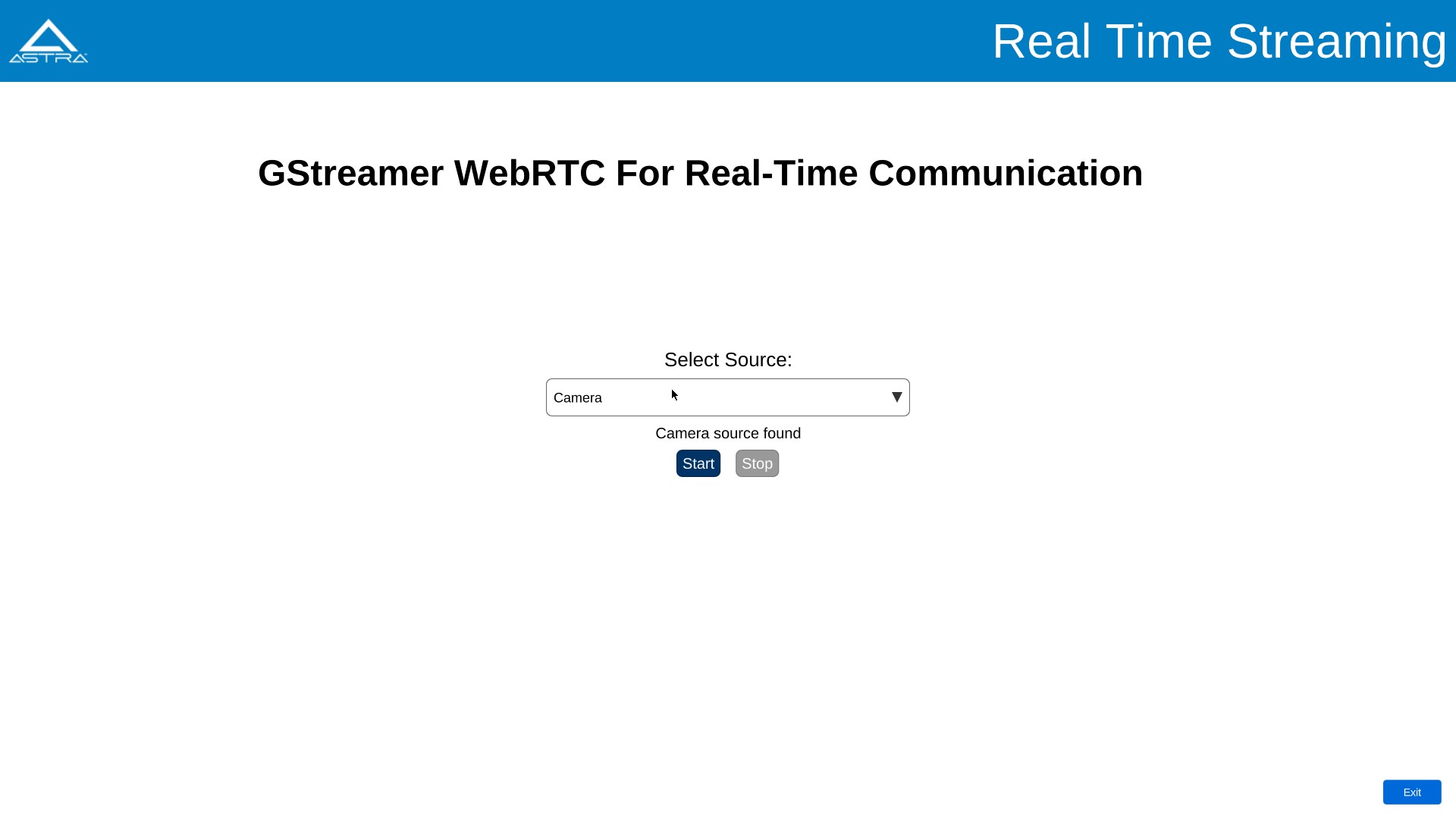
UI for streaming on web
Steps for using Camera as an Input
Ensure a camera device is connected to the board before using this feature.
Click the “Start” button after selecting the source. A message will appear, displaying the IP address and port number to watch the stream in any local browser. See the example image below:
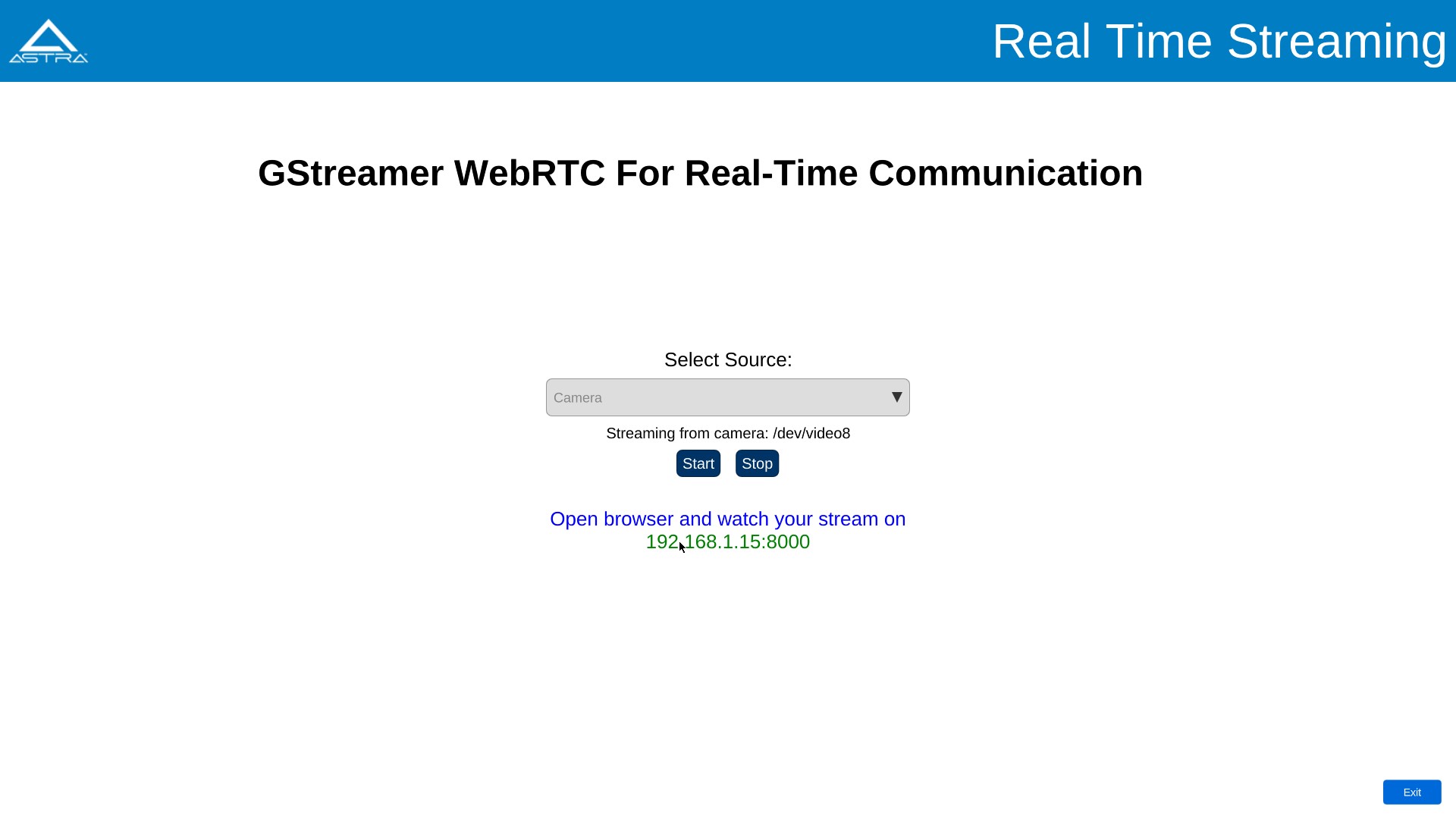
Streaming on web with camera
The stream will stop when the user clicks the “Stop” button or exits the app.
After opening the IP address with the port number in a browser, a link will appear in the top left corner of the webpage. Click on that link to view the stream. Below is an example of how the user will see the stream in their local browser:
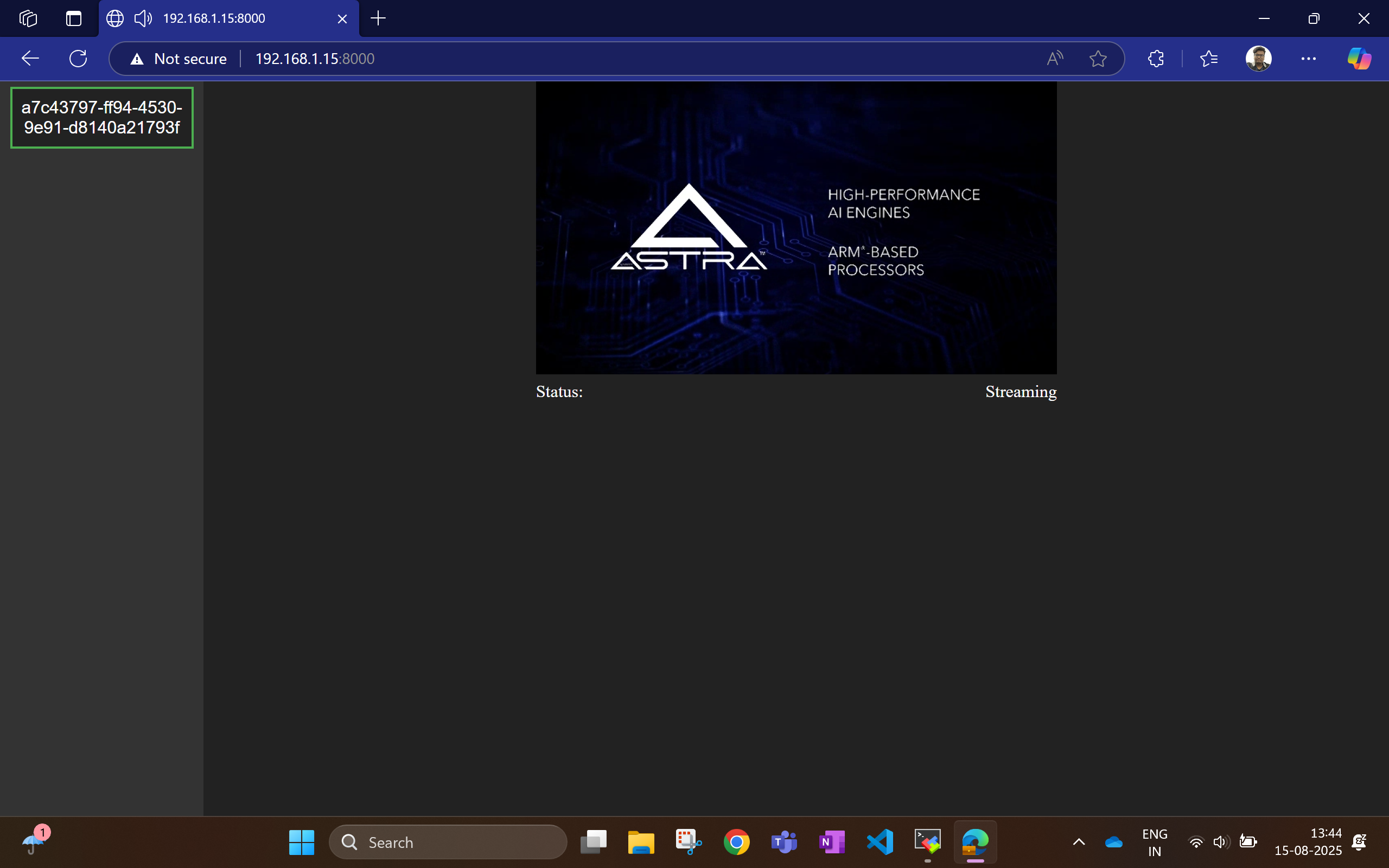
User streaming on the local browser
Steps for using FileSrc as an Input
This option lets users stream local video files present on the system.
Selecting this option opens a file explorer for users to choose a video file, as shown in the image below:
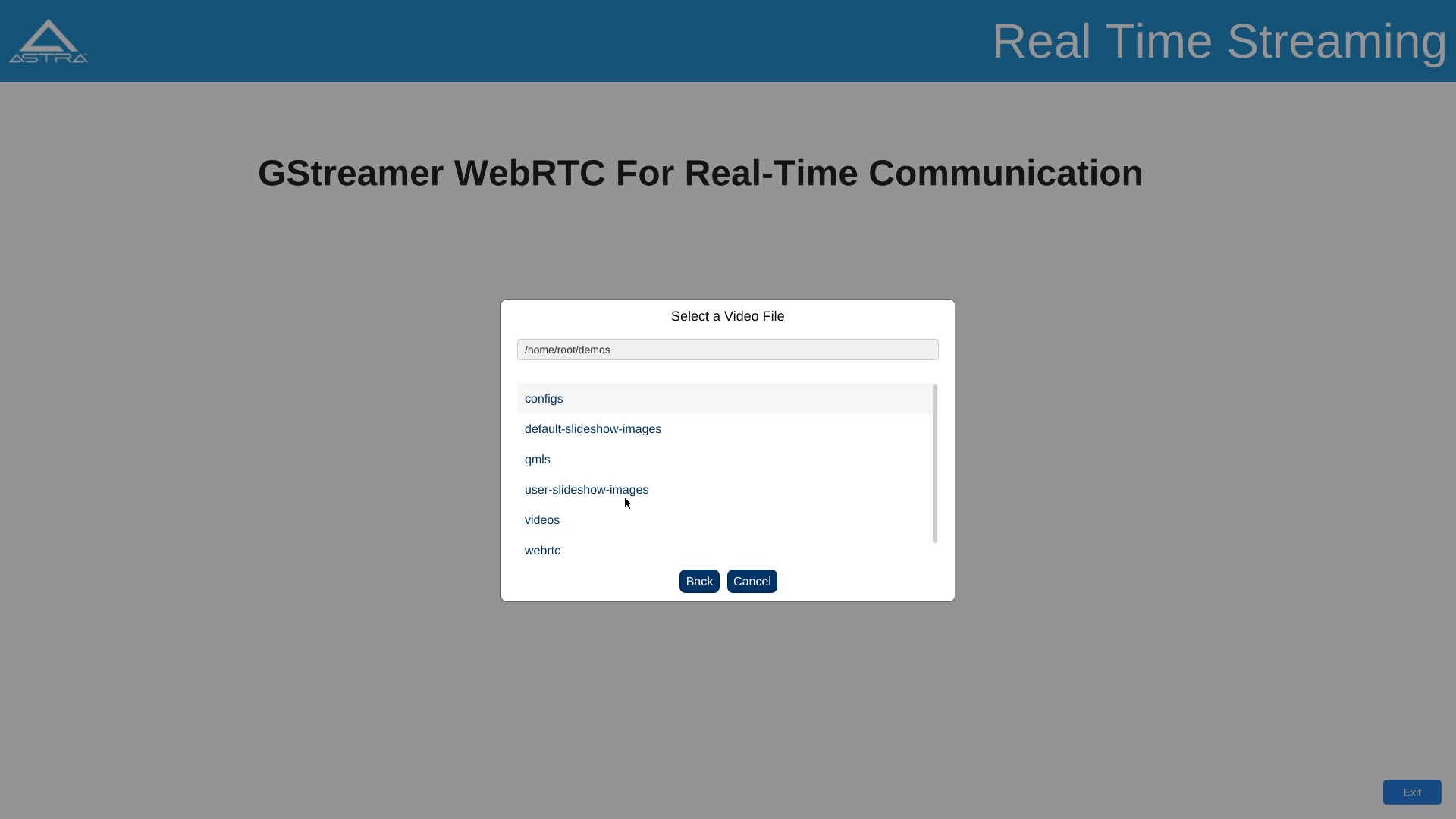
Streaming on web with FileSrc
After selecting a file, users must click the “Start” button to begin streaming.
Streaming stops when users click the “Stop” button, end the stream, or exit the app.
Settings
Settings can be launched by clicking the Settings icon in the quick access panel. Settings app helps to configure different modules like Display.
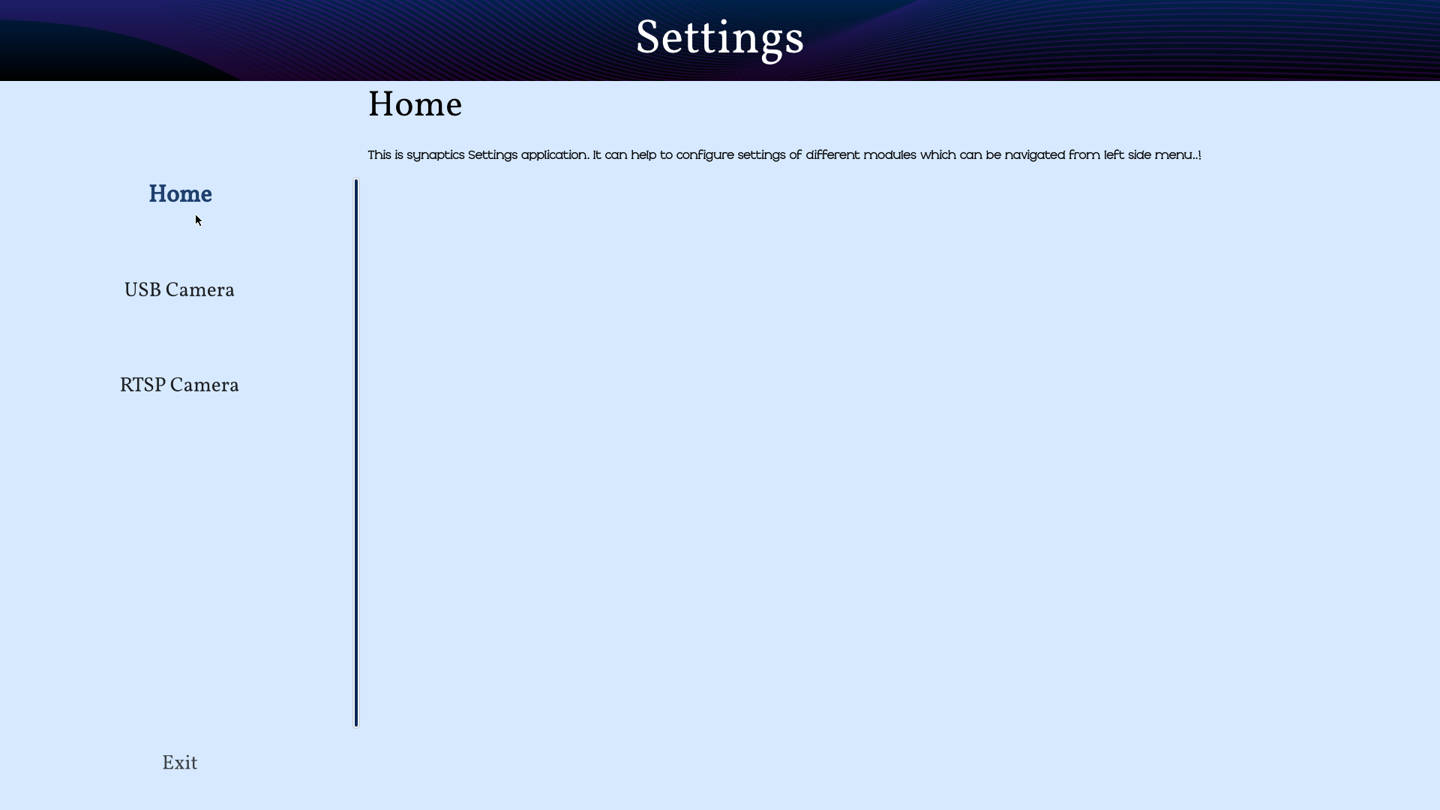
USB Camera
This section is for configuring the priority for the USB camera format selection. Click on the right side highlighted buttons to raise or lower the priority of specific format. Once done click on “Save Priorities” button.
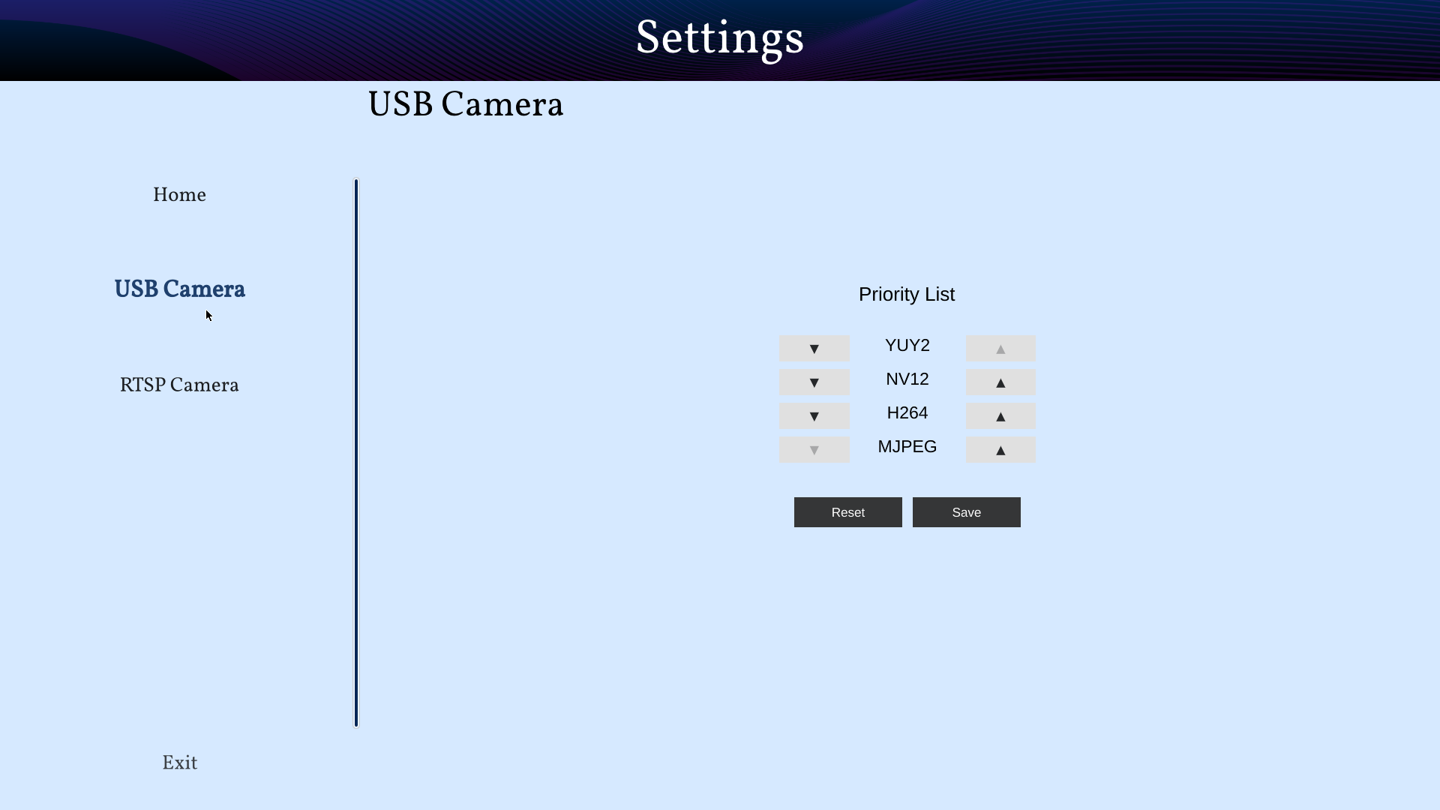
USB camera format priority settings on SL2619
RTSP Camera
This section is for configuring the RTSP URLs. After entering the RTSP URLs, click on “Save URLs” button. RTSP URLs can be verified by clicking on “Validate URLs” button to check if they are alive and reachable. Also it shows streaming media information.
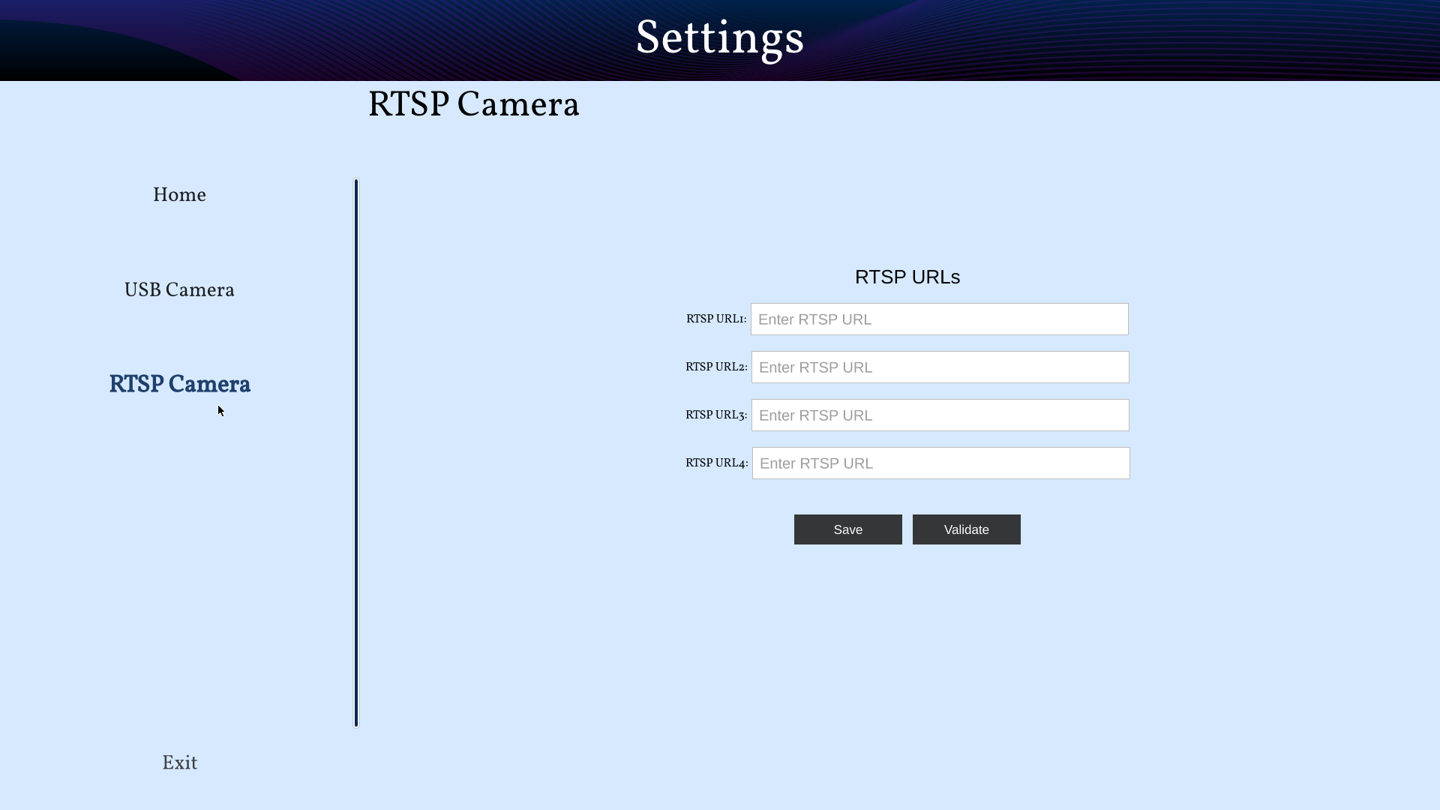
RTSP URLs settings on SL2619
About
About can be launched by clicking the About icon in the quick access panel. About helps to identify software version, hw revisions, linux build versions. It also provides some information on useful applications and internet links to resources.
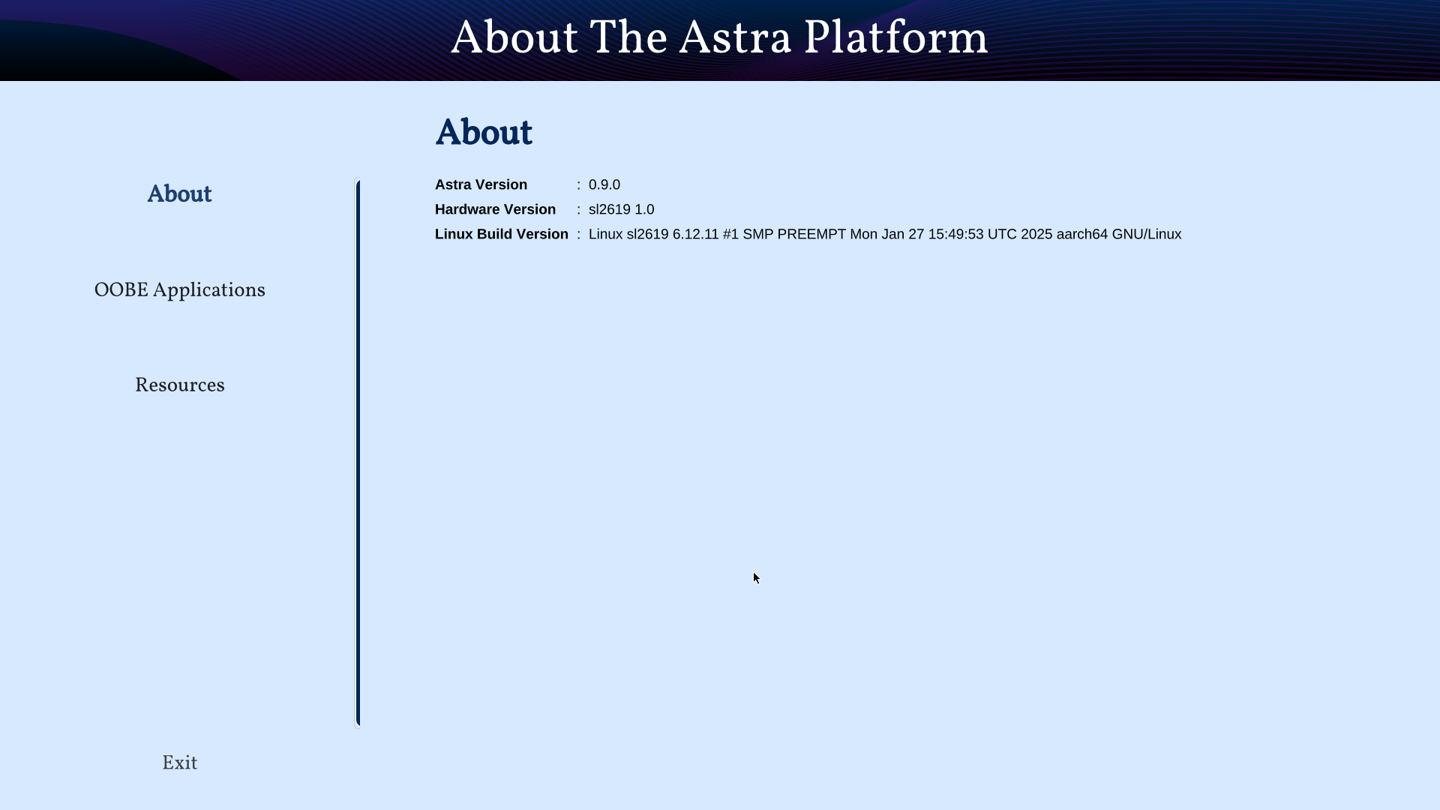
Users can access the OOBE applications from the panel.
